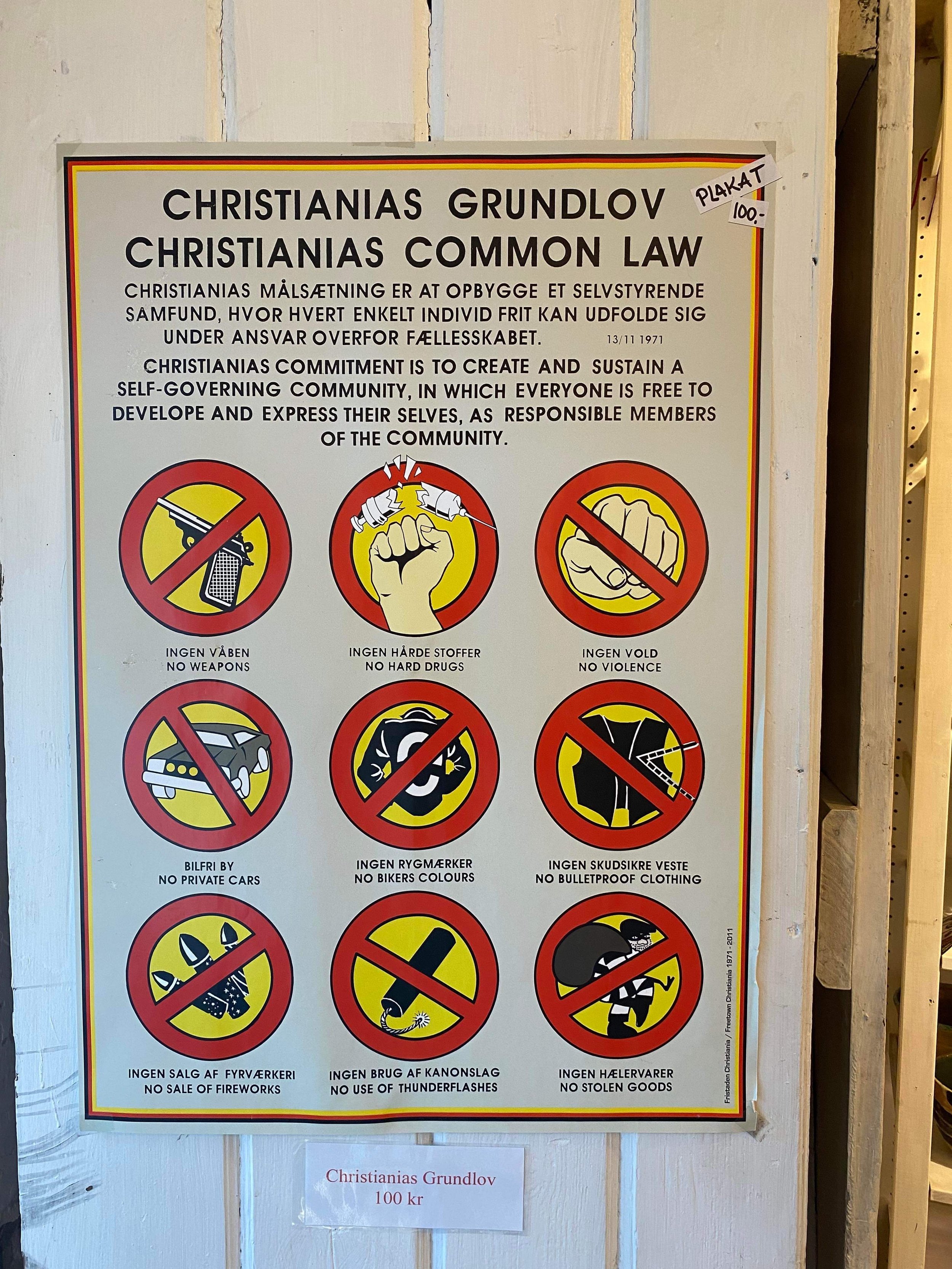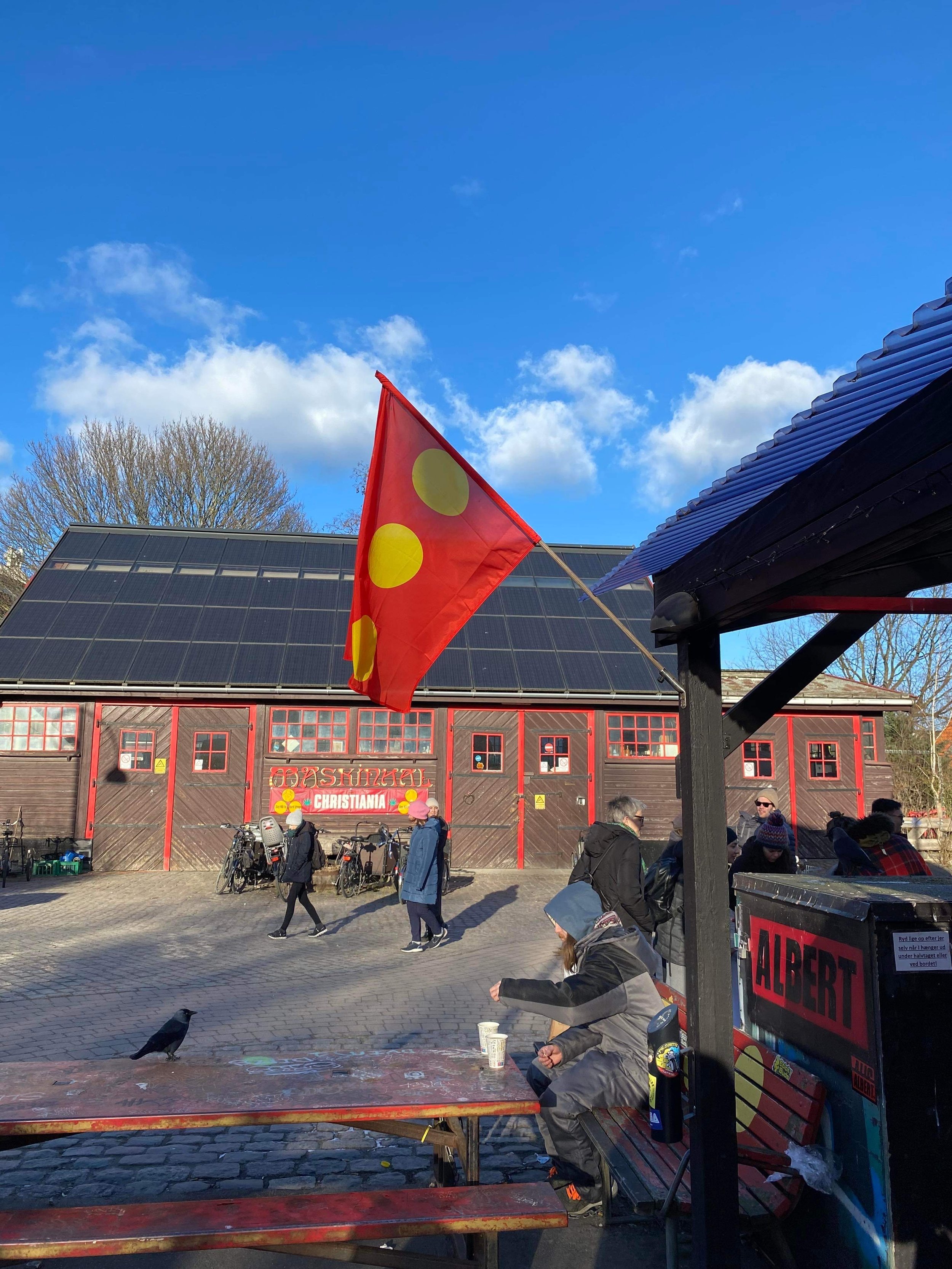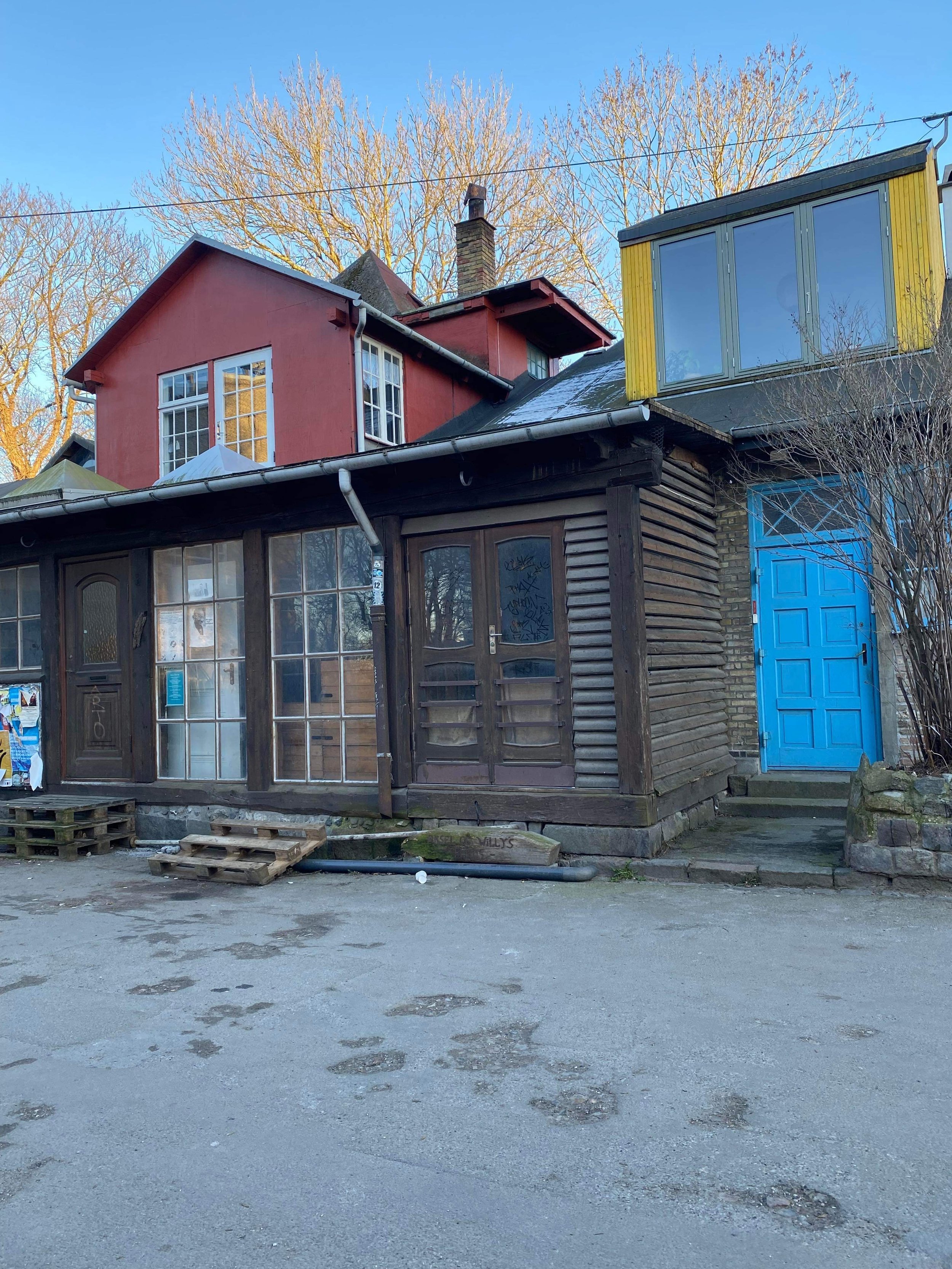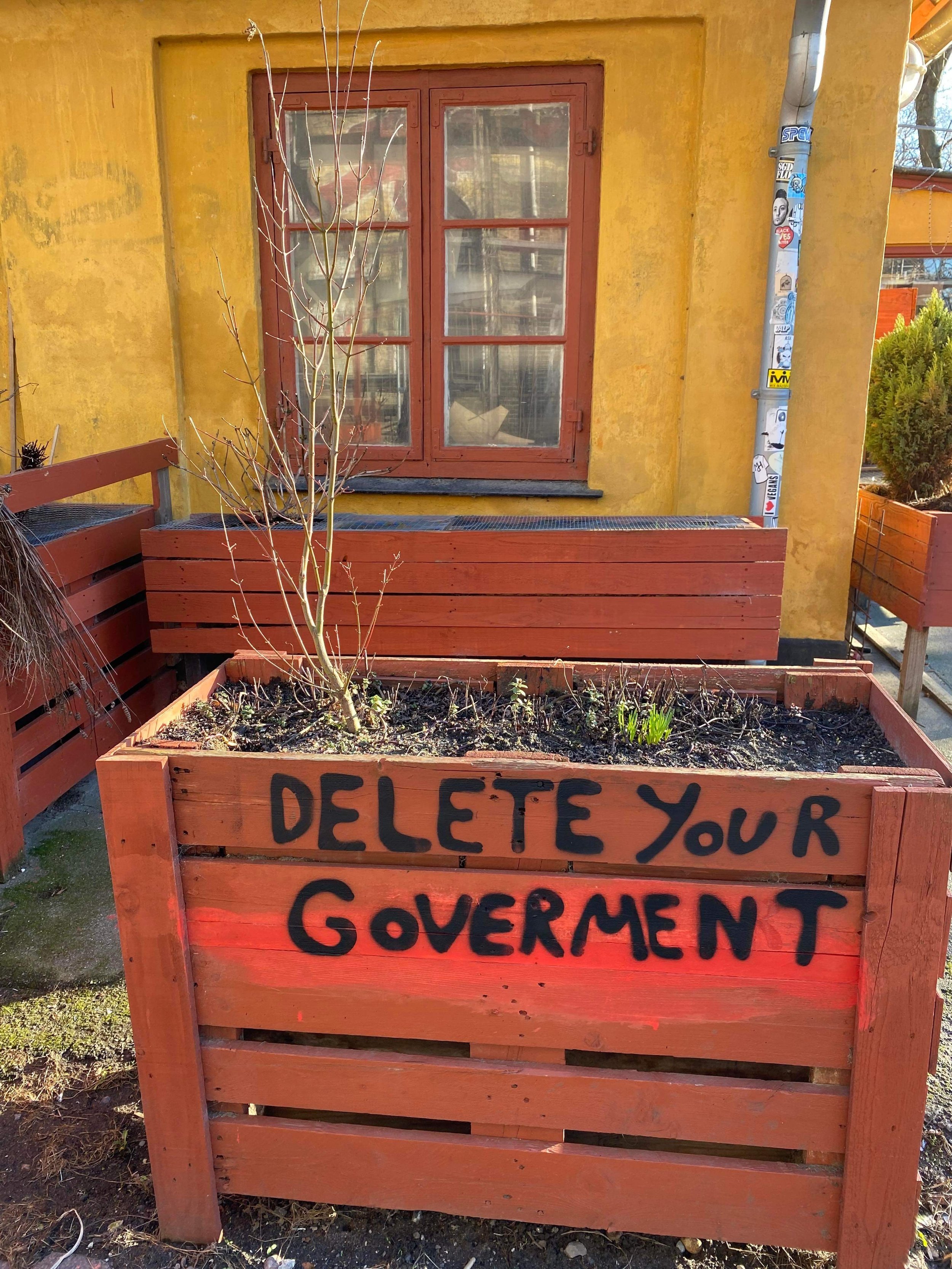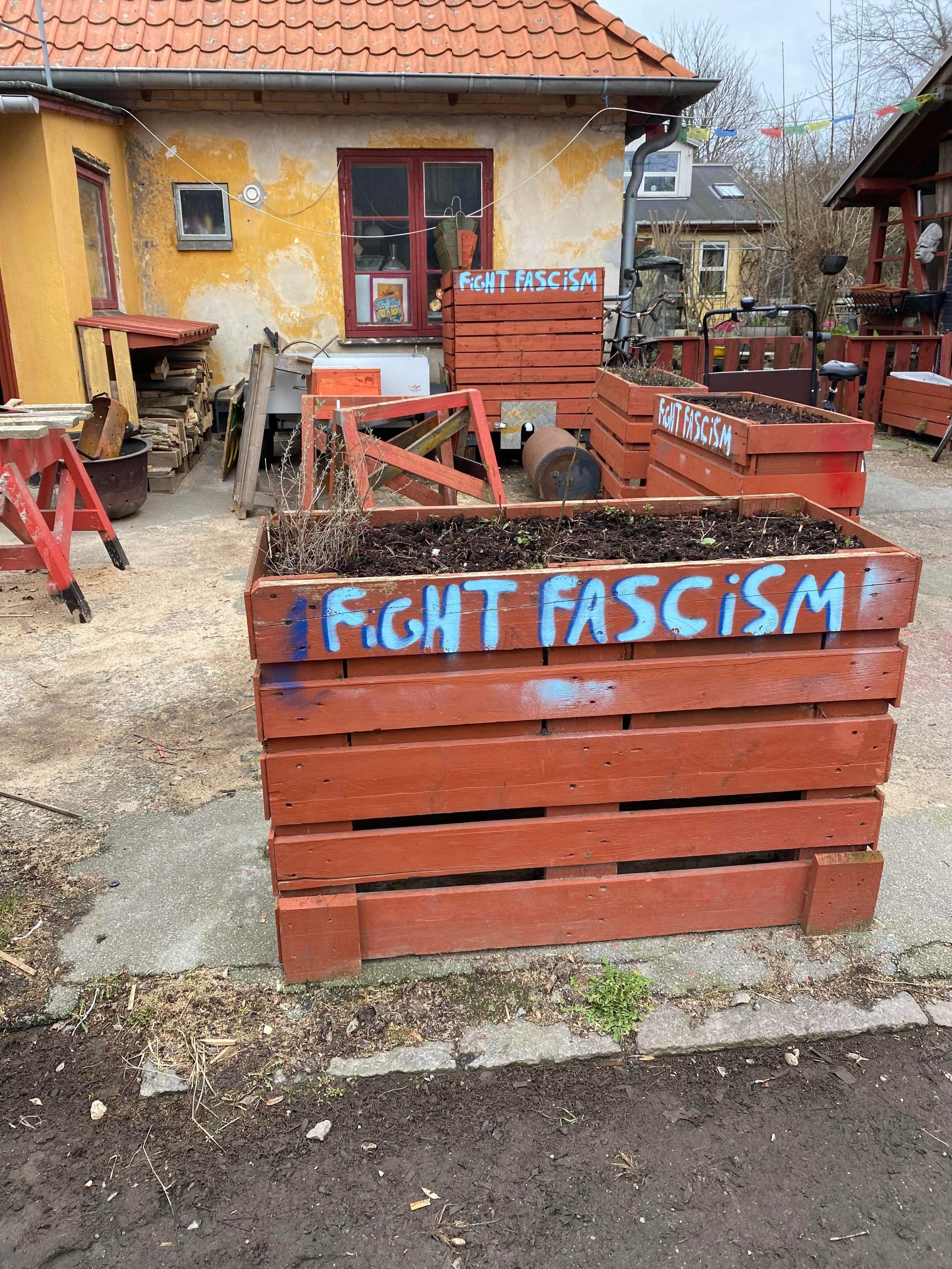Life in a Danish anarchist commune
A former military base, it suffered urban decay before it was embraced by a group of anarchists who made it their own.
Image Credit: Stella Zikos
Behind a graffitied fortress located on the island of Amager in Copenhagen, Denmark is a slice of greenery and a different side to the city. ‘Freetown Christiania’ is an anarchical, autonomous community that has thrived since 1971. A former military base, it suffered urban decay before it was embraced by a group of anarchists who made it their own.
Today, it’s a vibrant community home to 900 people, with buildings as colourful and eccentric as its residents and a do-it-yourself attitude at the heart of the Christianite lifestyle. The houses are inventive in their shapes, colours, and construction — all built by residents themselves.
Christiania’s common law governs its community with nine key rules: the most prominent being no weapons, no hard drugs, no violence, no motorcycle colours, and no cars. Its residents are united by their flag: bright red with three yellow dots in the centre representing the three “i’s” of Christiania.
These regulations were forged by townsfolk due to tumultuous circumstances. The “No Hard Drugs” law came in 1979, following the death of ten residents from overdoses. A resident I interviewed recalled their part in the Rainbow Army, who began a ‘Junk Blockade’ and cleared the streets of drug dealers, cleaned up after addicts, and offered them rehabilitation.
One may ask how a place with no laws functions as efficiently and communally as Christiania does. One resident summed it up perfectly: because there is no system of ownership, it has influenced the state of mind of its people.
There is also no leader. The town functions through regular communal meetings, allowing its residents to voice their perspectives and participate in decision-making. Because of this, Christiania, as another resident described, “feels like a big family.”
Perhaps the most well-known aspect of Christiania is its ‘Green Light District’ located on Pusher Street, where marijuana is sold. “No photo” signs are displayed throughout the long street, against a backdrop of tough drug laws in Denmark, and police regularly raid the area.
Thus, it has become a site of police brutality. A local resident described a recent incident that occurred in a children’s playground where they witnessed a man being tackled to the ground. It’s incidents like these, and many more, that have stoked further tension between Christiania and the Danish government.
However, it is important to acknowledge that Pusher Street and Christiania are “two worlds,” a resident described. The hash trade has not been run by Christianites since 2004 following a major police raid, but by gangs.
“I don’t know a face,” a resident mournfully stated. They expressed their frustration at the ‘Pushers’ regularly taking Christiania’s resources, and how the State has used Pusher Street to justify their undermining of Christiania’s vitality.
The solution to the problem is that recreational marijuana use be legalised in Denmark. However, this is unlikely given Denmark’s track record of being tough on drugs.
The accessibility of marijuana, together with the eccentricity of the town, has become a source of tourism for Christiania. Boasting half a million visitors annually, Christiania is the fourth-largest tourist attraction in Copenhagen.
A resident put it simply: “We live off the tourism.”
They were generally unopposed to the influx of tourism, the caveat being that the community can reap the benefits. Another Christianite I spoke to took issue with private tourism companies bringing hoards of people to Freetown, without allowing the community to experience direct monetary benefits.
Additionally, it has a commodifying effect — Christiania becomes a spectacle, rather than a community. Residents have to close their curtains to maintain privacy from the frequent tourist peekers desperate to gain insight into their alternative lifestyle.
This alternative lifestyle comes at a cost — the regular breakdown in discourse with the Danish government. In 2011, Christiania had no choice but to settle a deal with them, purchasing the land at below-market levels and establishing the Christiania Foundation where residents pay a small rent per month for their place.
The future of Christiania appears shaky, but not whilst its residents continue to maintain their fighting spirit.
“I kan ikke slå os ihjel” is their unofficial national anthem, scrawled on t-shirts, sung loud and proud in the streets of the town.
You cannot kill us.


